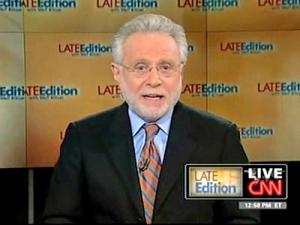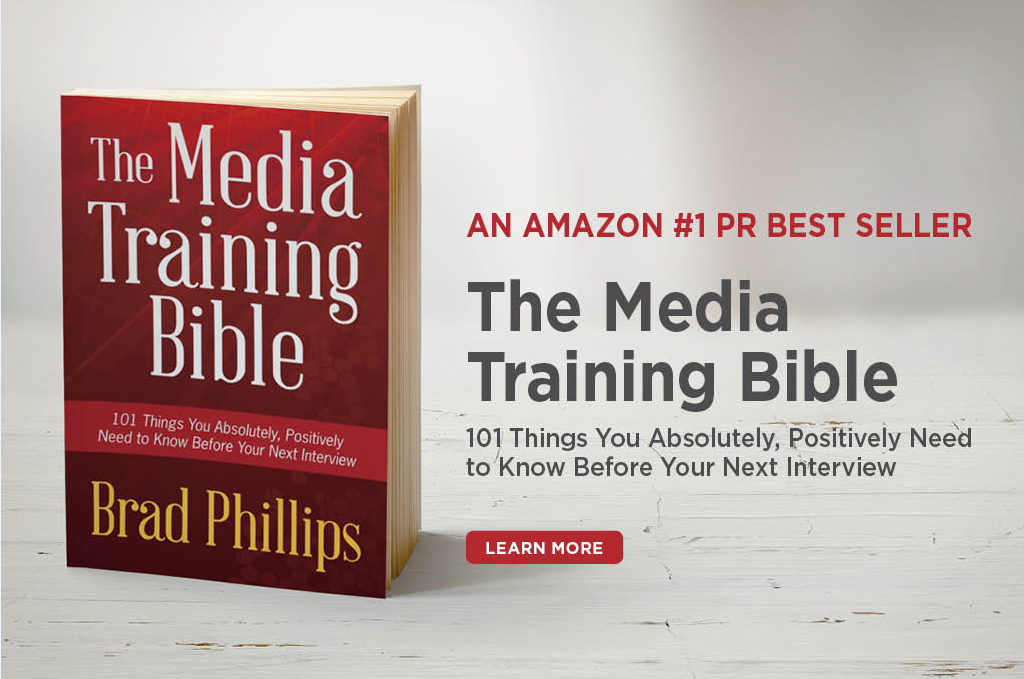The Three Questions Reporters Always Ask
In 1999, upon reporting for my first Sunday shift at CNN, I was invited into a “question” meeting with Wolf Blitzer and his executive producer.
The three of us sat around for 15 minutes, coming up with questions for former Vice President Dan Quayle, who was mounting a bid for the 2000 GOP nomination.
We developed a seemingly impressive list of questions, but I noticed that the questions all fit inside certain categories. Some questions were intended to be “stumpers,” for example, while others called for speculation.
That taught me an important lesson. Spokespersons don’t need to prepare for every possible question. They just need to prepare for every type of question. Below, you’ll find three types of questions reporters always seem to ask – and how to answer them with ease.

1. Questions You Don’t Know the Answer To
Many of our trainees get stumped during a live interview when they’re asked a question to which they don’t know the answer.
For example, a physician might be asked, “How many people are diagnosed with stage four liver cancer each year?” If she doesn’t know the answer, she might stumble before finally saying, “I don’t know.”
There’s nothing wrong with saying, “I don’t know” – but there’s a better way to handle that question during friendly interviews. Click here to see the “Peter Jennings Rule.”
2. Questions That Call for Speculation
Imagine you’re an advocate trying to pass a piece of legislation. You’re being interviewed when the reporter suddenly asks, “So, what’s the bottom line? Is this law going to pass?”
Don’t take the bait! If you guess wrong, reporters will be able to use your quote against you forever, and your credibility with the public may take a hit.
Stick with the facts. Answer by saying something like, “Well, we have more support for the bill than we’ve ever had before, and we are more hopeful than ever that we can get this passed.”
If pressed again, you can follow up with, “Well, although I can’t speculate, I can tell you that….”
3. Questions That Ask For Your Personal Opinion
Whole Foods Chairman and CEO John Mackey sparked a customer rebellion last year when he wrote an op-ed for the Wall Street Journal opposing President Obama’s health care reform proposal.
He defended himself days later, by writing, “I was asked to write an op-ed piece and I gave my personal opinions…Whole Foods as a company has no official position on the issue.”
Nonsense.
When you are identified as a spokesperson for a company, group, or organization, there’s no such thing as a personal opinion. The media will identify you as a representative of your organization. Period.
Therefore, do not offer a personal opinion. Instead, say, “Well, I’m speaking for the organization, not myself, and what we believe is….”
Just how important is that? Ask Mr. Mackey. He has some free time now that he’s out as Chairman.
Don’t miss a thing! Join our mailing list to have the best of the blog delivered to your inbox.




This was super helpful, Brad. Very good, as always.
Daniela,
Thanks so much for visiting the blog and leaving a comment. Hope you’re well, and please keep in touch!
Brad
Great post! I especially agree with point number 2 – there have been some major gaffs in the past when people have committed themselves! It can be funny when they are replayed at a later date! 😀
I have written a post over at Clever PR that will help people know what to ask when a journalist calls to arrange an interview. Hopefully your readers will find it useful: http://www.cleverpr.info/2011/03/01/5-questions-to-ask-before-an-interview-with-the-media/
Mark –
Thank you for your comments. Your article has a lot of useful tips, and my readers could surely learn something from it.
I agree with at least four of your five points. I’m a bit conflicted about asking reporters for the questions in advance, and the PR world hasn’t quite agreed on the best practice in that area. You can see some opinions on that topic here: https://www.throughlinegroup.com/index.php/2011/02/07/should-you-ask-reporters-for-the-questions/. You may indeed be right…I’m just not sure I’ve made up my mind entirely on that point.
Thanks again for reading the blog!
Best wishes,
Brad
Thanks Brad. It’s more of a “if you don’t ask, you don’t get” situation. 90% of journalists won’t have a set list of questions ready anyway, they will just go with the flow.
However, asking for a list may get them to disclose
a few of the topics they have on the tip of their tongue. It is a bit cheeky to ask though 😉
Great tips Brad!
Can I add one? Never repeat the reporter’s negative questions. I learned my lesson the hard way on this one.
http://mynewdirection.wordpress.com/2011/03/30/4-lessons-from-a-media-storm/
Also, as for asking for questions from reporters in advance… In my experience, this has turned reporters off and our community has missed some great national exposure as a result.
Thanks for adding to my interview-prep arsenal!
Adrienne
Adrienne,
Thanks for your comment, and great article! I, for one, would LOVE to go to Fargo. I really enjoy checking out parts of the country I’ve never been before, and was thrilled to check South Dakota off my list last year. And yes, I’d even put that over Hawaii. Well, in June, anyway. Honolulu wins in December. 🙂
Thanks again, and please keep reading.
Brad
For the record, Mr. Mackey did not say he was against health care reform. He said he was against Obamacare. Virtually everyone is for some kind of health care reform (including Mackey, per the op-ed piece referenced). However, most Americans oppose socialized medicine.
I know your mistake was unintentional and I know this site is not explicitly political, but the language used to frame the debate helped insure its outcome. You fell right into the leftists’ trap.
A rare mistake on your part. Love your blog.
David –
You’re exactly right. I’ve modified the language in the article to read, “Whole Foods CEO John Mackey sparked a customer rebellion last year when he wrote an op-ed for the Wall Street Journal opposing President Obama’s health care reform proposal.”
My mistake was an honest one, but I appreciate you keeping me honest. Thank you for making your point in such a fair and reasonable way!
Best wishes,
Brad
[…] The Three Questions Reporters Always Ask […]
[…] checklists, and examples of decision-making tools, from the Colorado Nonprofit Association. Brad Phillips, aka Mr. Media, says to be prepared for three types of questions from reporters: those you don’t […]
[…] obligation is to tell the truth. Journalists often see themselves as truth-seekers, and they ask tough questions in an effort to get the […]
I enjoy all of your posts, and tweets. Great stuff consistently, particularly on dealing with reporters. All of these comments apply to executive presentation as well!
Great stuff, very solid advise. It also never hurts to go back and read some past pieces from the reporter to get an idea of their style and possible angle.